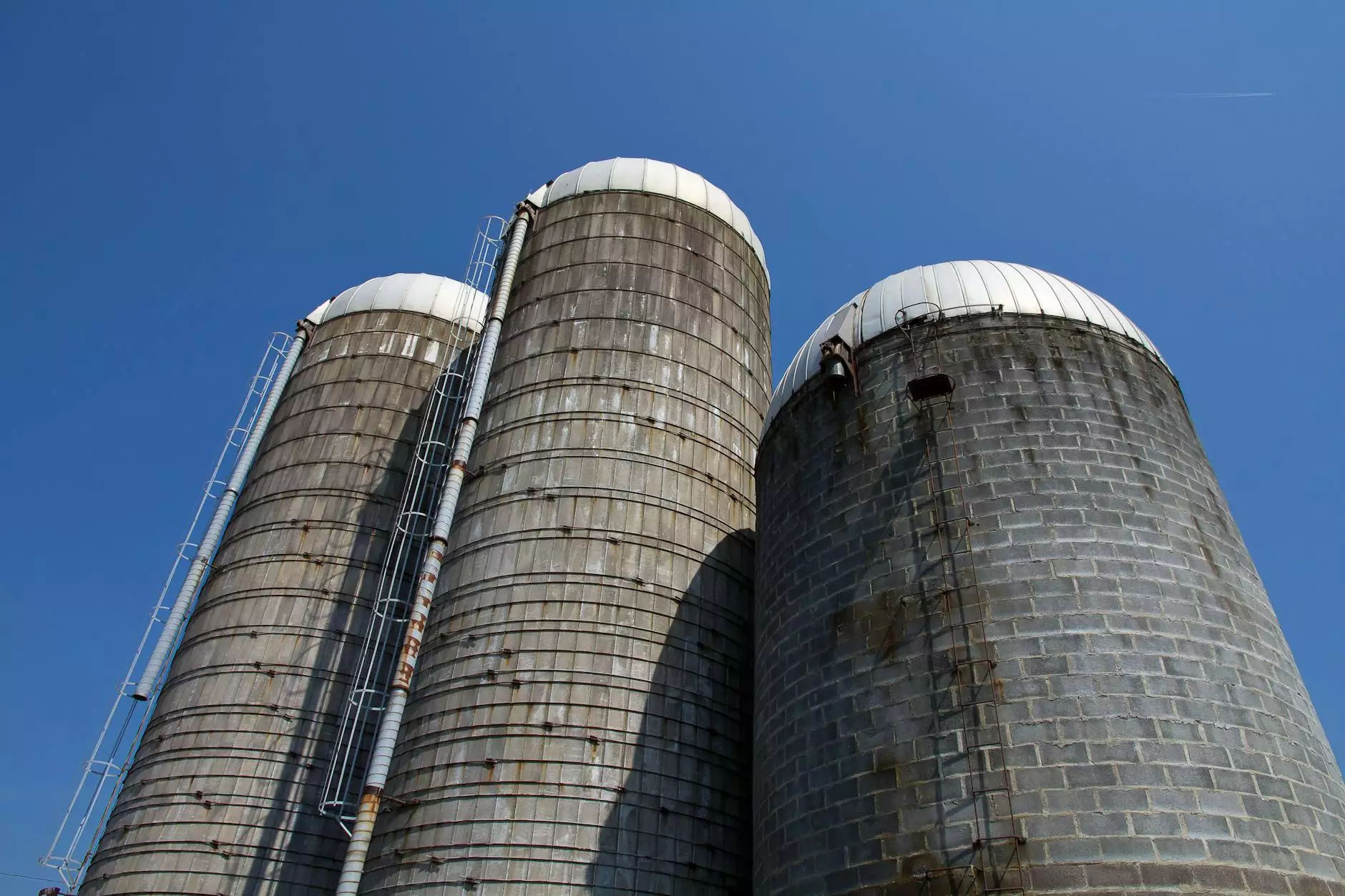Why is Grain Stored in Silos?

Grain storage in silos is a fundamental practice in the agricultural industry. Silos play a crucial role in preserving and protecting grain crops, ensuring food security, and optimizing farming operations. TSGC Inc., a reputable company specializing in farm equipment repair and farming equipment, understands the vital importance of proper grain storage. In this article, we will delve into the reasons why grain is stored in silos and the numerous benefits it provides.
The Importance of Grain Storage
The storage of grain in silos is essential for several reasons. Firstly, silos protect the harvested grain from external elements such as pests, weather conditions, and moisture. Grain stored in silos has reduced exposure to these factors, preventing spoilage and maintaining high-quality produce. Additionally, silos provide a controlled environment, regulating temperature and humidity levels to preserve the grain's integrity for longer periods.
Increased Storage Capacity
Silos offer efficient storage solutions for farmers, allowing them to store large quantities of grain in a relatively small space. Traditional storage methods, such as on-ground piles or bags, can be inefficient and occupy valuable farmland. Silos, with their vertical design, optimize space utilization and maximize storage capacity. This enables farmers to store more grain on-site, minimizing the need for expensive off-site storage facilities.
Enhanced Grain Quality
Grain quality is a top priority for every farmer. Silos contribute to maintaining grain quality through their airtight design and proper ventilation systems. Airtight silos prevent the entry of pests, insects, and moisture, protecting the grain from spoilage and contamination. Moreover, ventilation systems manage temperature and humidity levels, preventing the growth of fungi and bacteria that could otherwise compromise the grain's quality. As a result, farmers can ensure that the stored grain meets the highest quality standards.
Improved Operational Efficiency
Grain storage in silos greatly improves operational efficiency for farmers. With easy access to stored grain, farmers can effectively manage their inventory and plan for distribution according to market demand. Silos enable farmers to store different grain varieties separately, avoiding mix-ups and optimizing product traceability. Moreover, the vertical design of silos allows for efficient grain retrieval using automated systems, reducing manual labor and operational costs.
Long-Term Cost Savings
While initial investments in silos may seem significant, they offer substantial long-term cost savings for farmers. By preventing spoilage, preserving grain quality, and reducing potential losses, silos contribute to overall crop profitability. Farmers can avoid expenses related to post-harvest losses, such as grain drying, fumigation, and transportation to off-site storage facilities. Silos also provide flexibility in selling grain at opportune times, potentially maximizing profits for farmers in competitive markets.
Conclusion
In summary, grain storage in silos is an indispensable practice in modern agriculture. TSGC Inc., specializing in farm equipment repair and farming equipment, recognizes the significance of proper grain storage for farmers' success. Silos protect the grain from external elements, increase storage capacity, enhance grain quality, improve operational efficiency, and provide long-term cost savings. Invest in quality silos from TSGC Inc. and secure a sustainable future for your farming operations.
why is grain stored in silos


